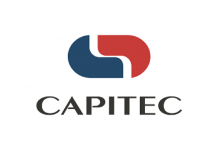A lot of young adults are counting on student loans to pursue a dream career or to get a higher education.
Some things need to be known ahead to plan and prepare properly, such as how much you actually pay back, and how you can get this off your shoulders faster.
So let’s take a look at things you might not know about student loan repayments.

What TYPES Of Student Loans Are There?
There are two main types of student loans; however, neither the loans or the repayment plans give you much of a choice. The two loans are: Income contingent Loans and Mortgage Style Loans.
Income Contingent Loans are loans offered if you started studying any time before or in September 1998. This loan is repaid through the tax system, depending on your earnings.
This loan does not have a set monthly payment and has 2 student loan plans as below.
Student loan Plan 1 applies to those who study in the UK unless they have a plan 2 loan.
Student loan Plan 2 is for those studying in Wales or England and have started on or after the 1st of September 2012
Mortgage Style Loans are for those who started any time before September 1998.
How Much Do You PAY BACK?
You need to pay back 9% of the earnings you have that are over your repayment threshold.
The interest rate on plan 1, is every year on the 1st of September, and the interest rate is at 1.75%.
For plan 2, if you are still studying, the interest will be the UK Retail Price Index, to which you add 3%. After you finish studying, it will depend on your salary. It varies from Retail Price Index if you earn under £26,575, and Retail Price Index plus 3% if you earn £47,835 or more.
The annual threshold is when you earn between £19,390 and £26,575 per year. Until you reach this yearly income, you will not repay your loan.
REPAYMENTS After You Finish Studying
Let’s see the good part of this. Happily, the tax system actually helps with this by withdrawing money from your balance automatically, until it’s fully paid off. It will depend on how much you earn, of course.
The government will not deduct any money if you earn below your threshold, though. The money will be deducted every pay period, no matter your pay plan, daily, weekly, or monthly.
The bad part is that even if you are self-employed, an employee, or overseas, you will still repay your loan. There’s no way to get rid of it, besides, of course, repaying it.
How To Pay It Off FASTER
There are not many options here. Just two. You either pay off your entire loan in full, any time you want or by small deposits of £5 or more.
You can deposit the £5+ any time you want or how many times you want. Payments have to be made to the Student Loans Company. Note that if you make these voluntary deposits, your employer will still make the deductions for the student loan. This way, you will regain your full independence sooner, though.
It is, however, worth considering using those small deposits for other purposes or at least pay proper attention to your finances and budget for this.
You also have the right for your loan to be written off. This depends on where you studied and the loan you have. For plan 1 and Mortgage loans, things are a bit more complicated, so you need to go to their website and see if any apply to your situation.
For plan 2 loans, those studying in Wales or England, loans are normally cancelled after 30 years. Important note- the loan will cancel after 30 years since you started repaying the loan, not since the loan was granted.

Summary
Student loans can provide you with the needed financial support for higher education, and by all means, it’s a good idea to continue studies while you are young, and your mind is used to being active and learning.
Most people regret not doing so in the early stages of their life, so you should give this a lot of serious thought.









